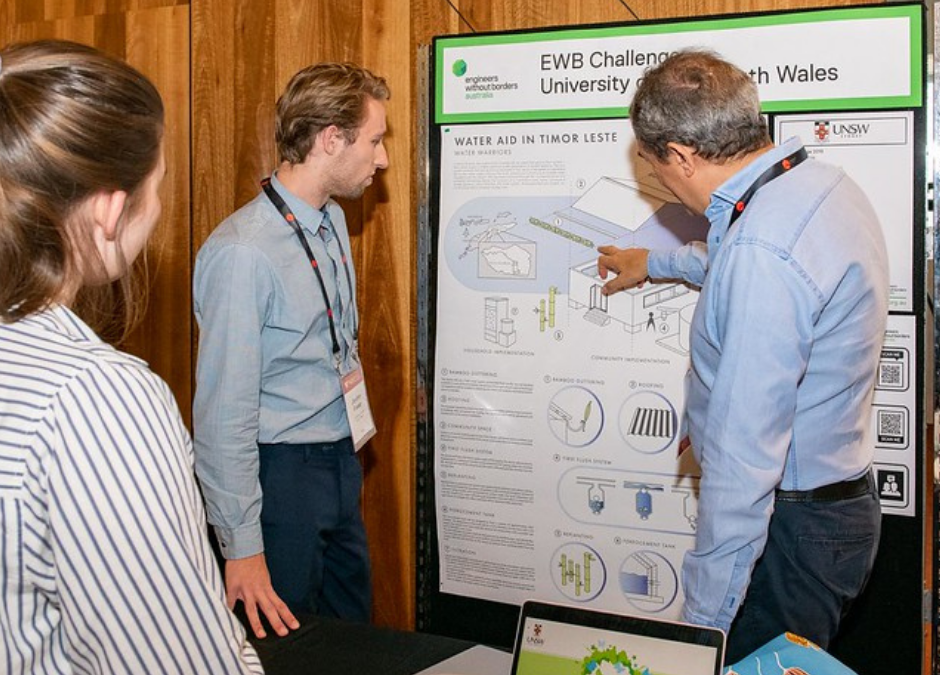The EWB Challenge is Engineers Without Borders Australia (EWB)’s pioneering design program enabling over 10,000 engineering and technical students from Australian and New Zealand universities to design creative solutions to real world problems. This year, students from South Africa, the UK, Ireland and the USA will join the design process, devising solutions to challenges experienced by Aboriginal & Torres Strait Islands communities who live in remote parts of far north Queensland.
This unique partnership between EWB Australia and our EWB counterparts in South Africa and the UK is the first of its kind since the successful Australian-born EWB Challenge concept was picked up and developed by other EWB organisations globally. The partnership means that double the number of students in their very first year of university will deeply engage with the role of engineering and engineers in developing solutions alongside Australia’s First Nations people.
The Engineering for People Design Challenge program is an international design initiative for university students that is delivered in partnership by Engineers Without Borders South Africa and Engineers Without Borders UK. This partnership will bring the latest EWB Challenge context and community partner, Centre for Appropriate Technology, to its cohort of 10,000 students at 43 universities across South Africa, the UK, Ireland, and the USA. Both programs are tailored to present students with an opportunity to design creative solutions to real-world challenges and in doing so, enable students to grapple with the fundamentals of design and the role of engineering in human development.
Each year, EWB creates a new series of challenges which are co-designed with a community partner, and this year that partner is the Centre for Appropriate Technology (CfAT). CfAT is an Aboriginal and Torres-Strait Islander controlled not-for-profit organisation which ‘exists to support people in regional and remote Australia in the choices they make in order to maintain their relationship with Country’. The design brief tasks students with exploring appropriate technology which can support traditional owners living and thriving on homelands and outstations, with a focus on CfAT’s work with communities in the Cape York region of Far North Queensland. Each brief is meticulously researched on location and led by community needs. Extensive documentation, interviews, and multimedia assets are provided to students to ensure a rich, deep insight into the life and challenges of that community. Live stakeholder engagement opportunities are also offered during the semester-long program.
Today’s university students will be entering their careers in a rapidly-changing world facing complex global challenges and must be introduced to the skills required to navigate this complexity from the day they begin their study. Future technical professionals must be enabled to explore and grow a broad skill set alongside an understanding of the role they might play in addressing the interconnected social, environmental, and economic challenges facing our world. The EWB Challenge program enables university academics to build the competencies of first-year students in areas such as professional practice, design processes, and sustainable development theory through engagement in these real-world project briefs. These programs support the tertiary sector in the delivery of curriculum-integrated and career-relevant applications to theoretical study, and present a clear pathway for students to develop future-fit professional skills and their personal engineering vision. As ideas are shared back with the community partner for potential future development, it also enables students the opportunity to devise a solution that might be practically applied.
The partnership demonstrates the continuing demand for engineering students to learn with sustainable development principles as part of their education so they have the socio-technical skills to solve real-world complex challenges when they enter the sector. EWB Australia is excited to continue to use meaningful collaborations as ways to positively impact students, universities, the engineering profession and our community partners, both locally and globally.


